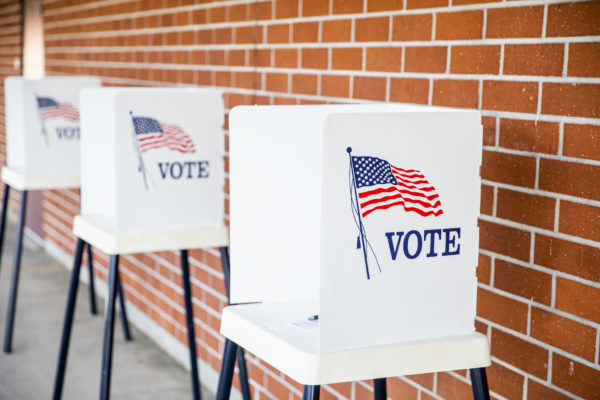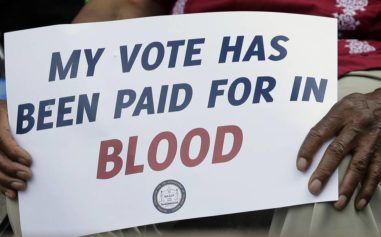Just months after Florida residents voted to allow former felons to have their voting rights restored post-incarceration, a Republican-controlled House committee just created a huge roadblock to keep that from happening.
The Florida House of Representatives’ Criminal Justice Subcommittee on Tuesday approved a bill that would require felons to pay any outstanding fines and fees before regaining their right to vote. Supporters of the bill say the measure is meant to establish uniformity about who can actually vote, however, critics see it an effort to usurp a new amendment allowing the state’s estimated 1.4 million felons to vote once again.

Critics of the new Florida House bill said it creates an unfair burden for low-income residents who can’t afford to pay hefty fees in order to have their voting rights restored. (Getty Images)
“This [bill] is just flying directly in the face of what two–thirds of Florida voters said very clearly,” Sean Morales-Doyle, a lawyer at the Brennan Center for Justice, told The New York Times.
In November, nearly 65 percent of Florida voters cast their ballots in favor of Amendment 4, which mandates the “automatic” restoration of voting rights to former felons who have successfully completed the terms of their sentence, including probation and parole. Those convicted of murder or felony sexual offenses are excluded from the measure.
Supporters of the House bill have argued, however, that “fines and fees” are included as part of one’s sentence and must be “completed” in order for voting rights to be restored. Amendment 4 supporters disagreed and have likened the GOP measure to a modern-day “poll tax,” a reference to fees used to deter African-Americans from voting in Southern states beginning in the 1890’s.
ACLU of Florida political director Kirk Bailey called the bill an “affront” to the thousands of Florida voters who approved Amendment 4.
“If this bill passes, it will undoubtedly continue to disenfranchise those who have already served their time and paid their debt to society,” Bailey told The Daily Beast in a statement. “This is exactly what we were worried about from the beginning — legislative attempts to undermine the will of the people who voted for second chances and to rid Florida of the last vestiges of its Jim Crow era past.”
Moreover, critics argue that the measure would unfairly punish those who are too poor to pay hefty fines. A report by South Florida station WLRN noted that the vast majority of court fines go unpaid because people simply don’t have the money to pay them. In Miami-Dade county alone, more than $278 million dollars in court fines stemming from felony convictions are currently outstanding.
The issue is even more severe statewide, where $1 billion in felony fines were issued between 2013 and 2018 but only 19 percent of them were ever paid, according to the report.
Rep. James Grant (R-Tampa), the subcommittee chairman sponsoring the measure, has blasted the “poll tax” characterization, however, and said the goal of the legislation is to create a uniform way to determine who is and is not legally eligible to vote. The passage of Amendment 4, which took effect in January, has sparked confusion over its language and how the law would be implemented.
“When a petition process leads to a constitutional amendment, we as legislators do not have the luxury, the latitude or the freedom to play the ‘what if’ game, to play the ‘edit the language’ game,” Grant said.
However, WLRN points out that Amendment 4, by its own terms, is “self-executing” and requires no implementation by the Legislature.
“We think that on January 8th, when the constitutional amendment goes into effect, people can go to their supervisor of election [and register],” ACLU-Florida executive director Howard Simon, who sat on the committee that drafted the amendment, told the station. “It says that voting rights ‘shall be restored.’ I don’t know what is unclear about that, what could be unclear about that.”
The state’s Republicans, including Gov. Ron DeSantis, disagree, however, and argue the bill needs what they call “implementing language.”
The new bill is expected to move its way through the House fairly quickly while the Senate prepares its own suggestions on how the amendment should be rolled out.


